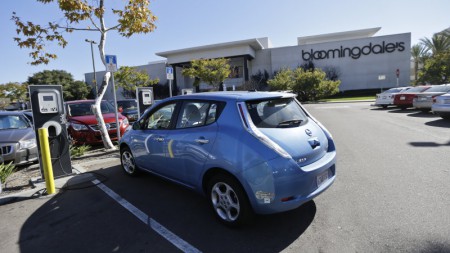The International ZEV Alliance, an international group geared to cut greenhouse-gas emissions by spurring more electric vehicle sales, has used the United Nations’ COP21 climate-change conference in Paris to set a rather lofty goal.

The group wants to have all new cars sold within their jurisdictions to be emissions-free by 2050, according to Green Car Reports. The group includes eight US states, (California, Connecticut, Maryland, Massachusetts, New York, Oregon, Rhode Island, and Vermont) along with Quebec, Germany, the Netherlands, Norway, and the UK.
The Alliance was officially founded in September. At the time, it was determined that the group accounted for seven percent of global vehicle sales but also made up 38 percent of electric-vehicle sales, so these entities already appear to be the world leaders in the zero-emissions vehicle movement. The eight US states have been at it for a while, of course, joining up in May 2014 to state their collective goal to have 3.3 million electric vehicles on their roads by 2025. Those states and their Multi-State ZEV Action Plan account for almost one-fourth of US light-duty vehicle sales.
Of course, Norway always shoots high when it comes to zero-emissions transportation. Long known for its abundance in hydroelectricity and big-time plug-in vehicle incentives, that country is aiming to have all new cars emissions-free within the next decade.
Another group of US and non-US entities, including California, France’s Alsace region and parts of Holland, signed onto the Under 2 MOU agreement at COP21. Those members aim to cut greenhouse-gas emissions by 2050 to less than 20 percent of those in 1990.
Source: Autoblog
